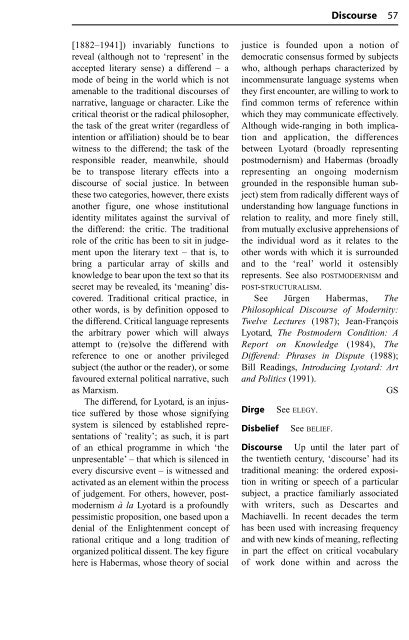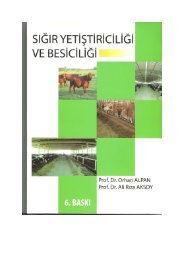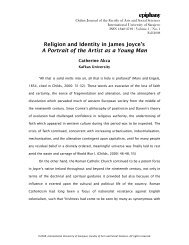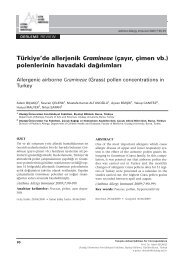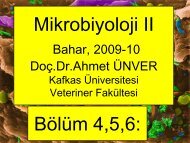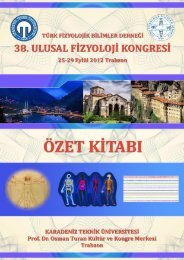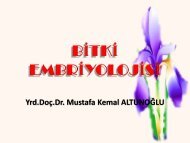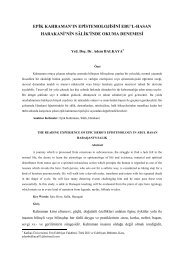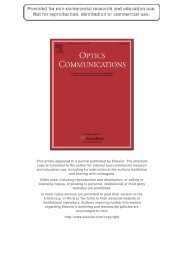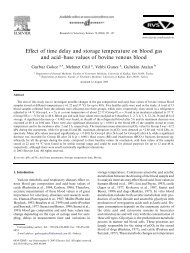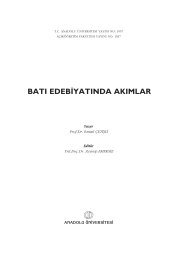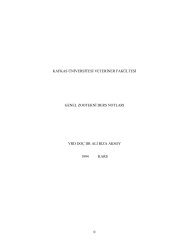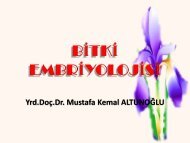The Routledge Dictionary of Literary Terms
The Routledge Dictionary of Literary Terms
The Routledge Dictionary of Literary Terms
You also want an ePaper? Increase the reach of your titles
YUMPU automatically turns print PDFs into web optimized ePapers that Google loves.
[1882–1941]) invariably functions to<br />
reveal (although not to ‘represent’ in the<br />
accepted literary sense) a differend – a<br />
mode <strong>of</strong> being in the world which is not<br />
amenable to the traditional discourses <strong>of</strong><br />
narrative, language or character. Like the<br />
critical theorist or the radical philosopher,<br />
the task <strong>of</strong> the great writer (regardless <strong>of</strong><br />
intention or affiliation) should be to bear<br />
witness to the differend; the task <strong>of</strong> the<br />
responsible reader, meanwhile, should<br />
be to transpose literary effects into a<br />
discourse <strong>of</strong> social justice. In between<br />
these two categories, however, there exists<br />
another figure, one whose institutional<br />
identity militates against the survival <strong>of</strong><br />
the differend: the critic. <strong>The</strong> traditional<br />
role <strong>of</strong> the critic has been to sit in judgement<br />
upon the literary text – that is, to<br />
bring a particular array <strong>of</strong> skills and<br />
knowledge to bear upon the text so that its<br />
secret may be revealed, its ‘meaning’ discovered.<br />
Traditional critical practice, in<br />
other words, is by definition opposed to<br />
the differend. Critical language represents<br />
the arbitrary power which will always<br />
attempt to (re)solve the differend with<br />
reference to one or another privileged<br />
subject (the author or the reader), or some<br />
favoured external political narrative, such<br />
as Marxism.<br />
<strong>The</strong> differend, for Lyotard, is an injustice<br />
suffered by those whose signifying<br />
system is silenced by established representations<br />
<strong>of</strong> ‘reality’; as such, it is part<br />
<strong>of</strong> an ethical programme in which ‘the<br />
unpresentable’ – that which is silenced in<br />
every discursive event – is witnessed and<br />
activated as an element within the process<br />
<strong>of</strong> judgement. For others, however, postmodernism<br />
à la Lyotard is a pr<strong>of</strong>oundly<br />
pessimistic proposition, one based upon a<br />
denial <strong>of</strong> the Enlightenment concept <strong>of</strong><br />
rational critique and a long tradition <strong>of</strong><br />
organized political dissent. <strong>The</strong> key figure<br />
here is Habermas, whose theory <strong>of</strong> social<br />
justice is founded upon a notion <strong>of</strong><br />
democratic consensus formed by subjects<br />
who, although perhaps characterized by<br />
incommensurate language systems when<br />
they first encounter, are willing to work to<br />
find common terms <strong>of</strong> reference within<br />
which they may communicate effectively.<br />
Although wide-ranging in both implication<br />
and application, the differences<br />
between Lyotard (broadly representing<br />
postmodernism) and Habermas (broadly<br />
representing an ongoing modernism<br />
grounded in the responsible human subject)<br />
stem from radically different ways <strong>of</strong><br />
understanding how language functions in<br />
relation to reality, and more finely still,<br />
from mutually exclusive apprehensions <strong>of</strong><br />
the individual word as it relates to the<br />
other words with which it is surrounded<br />
and to the ‘real’ world it ostensibly<br />
represents. See also POSTMODERNISM and<br />
POST-STRUCTURALISM.<br />
See Jürgen Habermas, <strong>The</strong><br />
Philosophical Discourse <strong>of</strong> Modernity:<br />
Twelve Lectures (1987); Jean-François<br />
Lyotard, <strong>The</strong> Postmodern Condition: A<br />
Report on Knowledge (1984), <strong>The</strong><br />
Differend: Phrases in Dispute (1988);<br />
Bill Readings, Introducing Lyotard: Art<br />
and Politics (1991).<br />
GS<br />
Dirge See ELEGY.<br />
Disbelief See BELIEF.<br />
Discourse 57<br />
Discourse Up until the later part <strong>of</strong><br />
the twentieth century, ‘discourse’ had its<br />
traditional meaning: the ordered exposition<br />
in writing or speech <strong>of</strong> a particular<br />
subject, a practice familiarly associated<br />
with writers, such as Descartes and<br />
Machiavelli. In recent decades the term<br />
has been used with increasing frequency<br />
and with new kinds <strong>of</strong> meaning, reflecting<br />
in part the effect on critical vocabulary<br />
<strong>of</strong> work done within and across the


